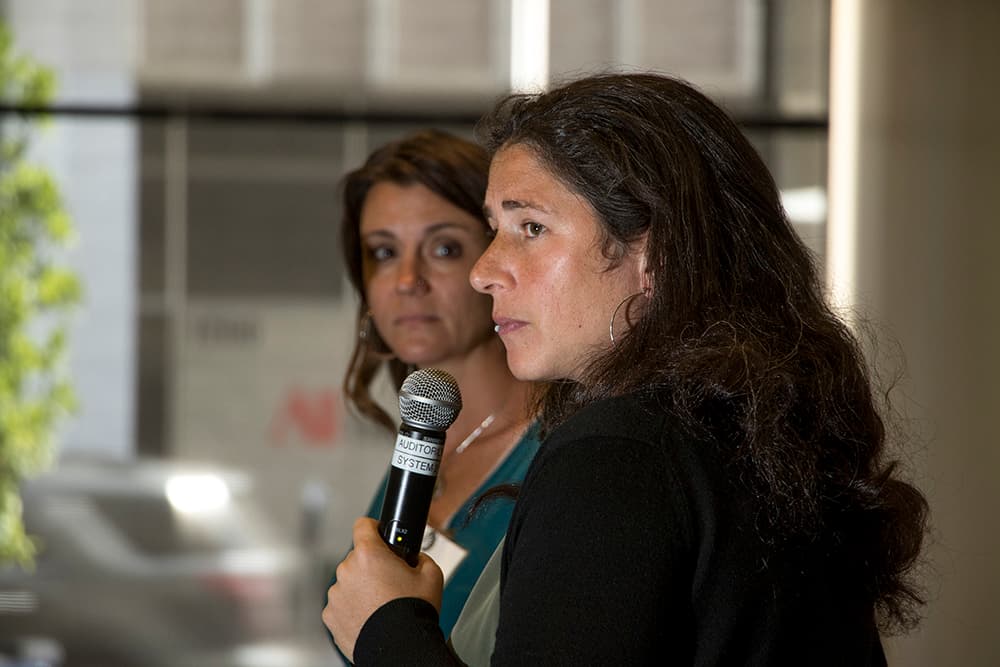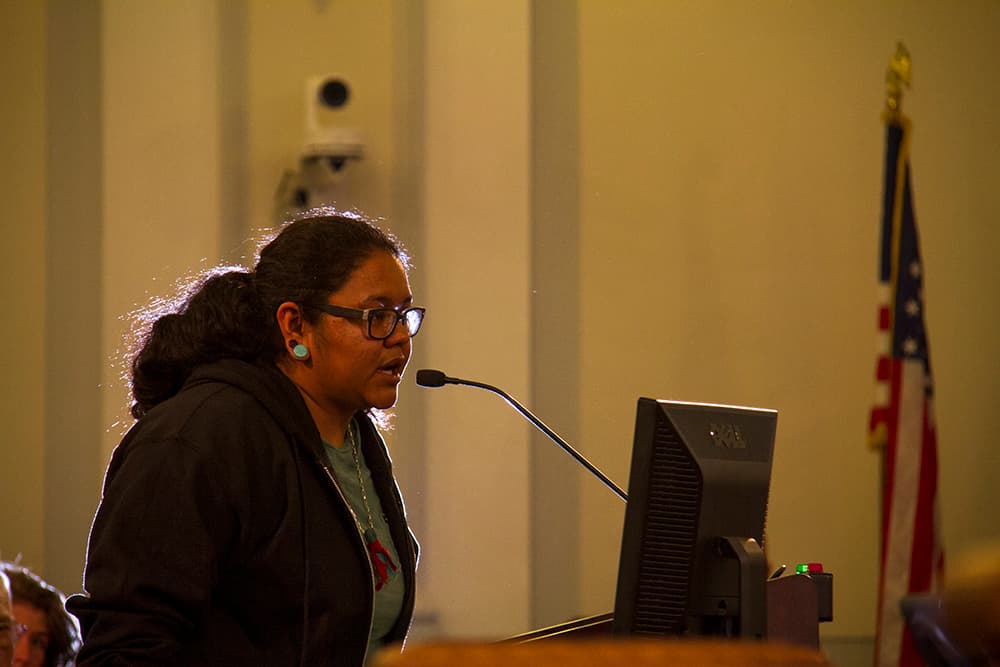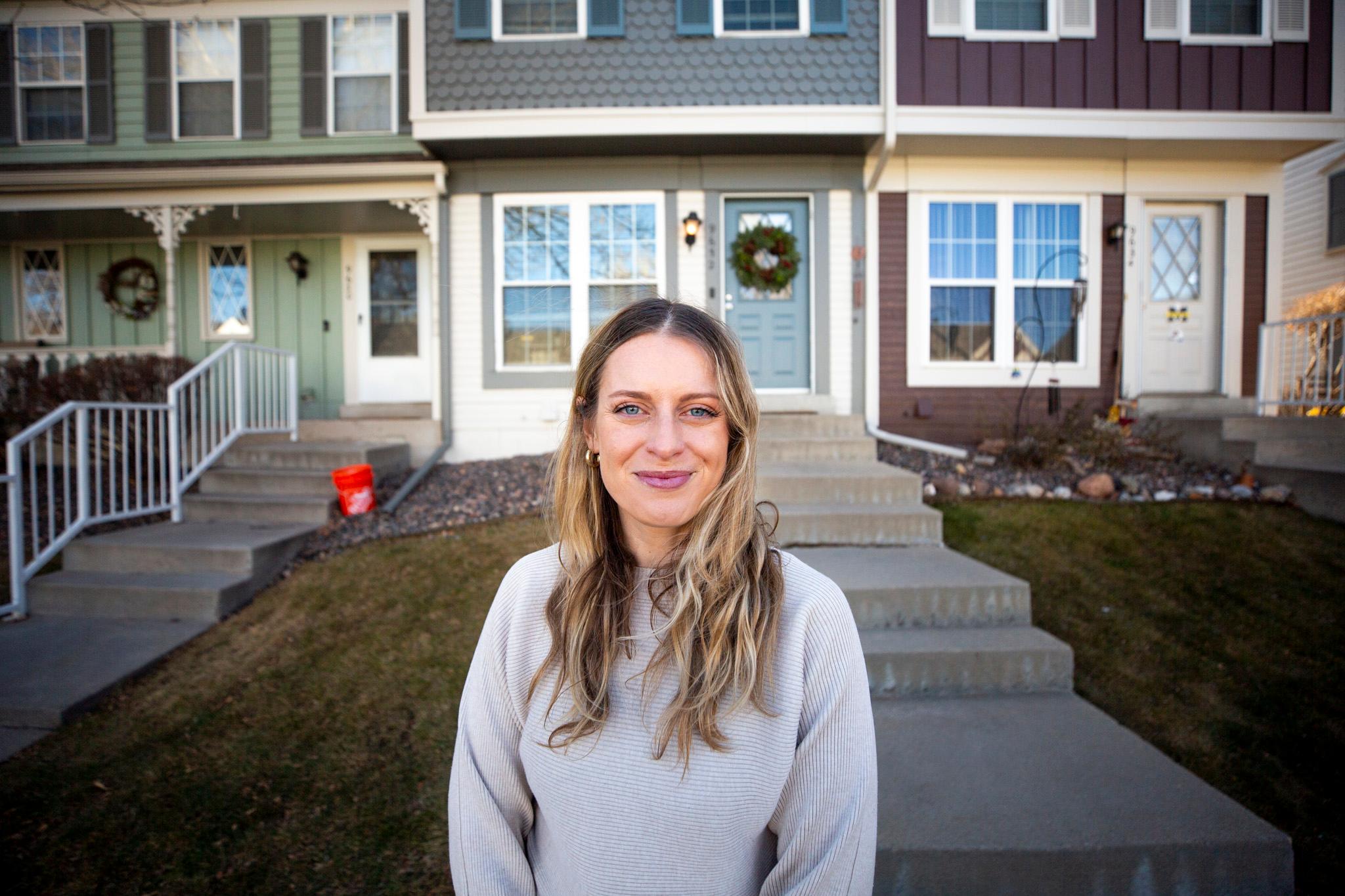
Unmarried women make up about a quarter of the electorate in Colorado and nationally, but they vote at lower rates than their married counterparts -- 71 percent turnout in Colorado in 2016, compared to 86 percent for married women. As Democrats and progressives organize for 2018 and beyond, this is a demographic whose political participation they hope to increase.
Rebecca Traister is the author of "All the Single Ladies: Unmarried Women and the Rise of an Independent Nation" and wrote extensively about Hillary Clinton during and after the election as a writer at large for New York magazine. She spoke Thursday in Denver to NARAL Pro-Choice Colorado's Women's Leadership Council.
I spoke with Traister before the event about what makes "single women" a meaningful category, what unites and divides female voters and why Democrats are still fighting the 2016 primary between Clinton and Sen. Bernie Sanders.
This conversation has been lightly edited for length and clarity.
When we're talking about single women as this new influential group, we're talking about women in their 20s pursuing their careers, women with children, women who are divorced, who are older, people in really different stages of life. What is it that makes these people similar? What connects them?
There are a lot of ways they are not similar. I wrote this book, and I'm as responsible as anybody for suggesting there is some uniformity, but there is no uniformity. There are many experiences of being single and hugely different ranges of challenges and perspectives that single women have.
But one of the things that unites them in the United States is they are living outside the system that up until very recently had been designed to organize society, to organize power, to organize money, to organize how families are made and how they are defined.
In the United States, our systems are designed around the idea that there are different kinds of people who do different sorts of functions. There is the kind of American who earns money, who goes out and provides economic stability. There is the kind of American who deals with the reproduction of home and family and children. One of those kinds of people is a man, and one of those kinds of people is a woman and they are organized into units, and then once you start from that, then you get into all kinds of tax policy, housing, social policies around child care, around parental leave. There are all these different things that we don't think of as related to marriage and singledom. Why does school get out when it does? There is a presumption that there is someone at home to take care of the kids, and that person is a woman, and she has a partner who is out earning money.
To be living outside of that structure, around which not only our ideas of gender and marriage but literally our social and economic policy are designed, means you have a growing and swiftly growing population of people for whom those policies are not working.
To what extent is being outside these societal structures enough to create a common interest?
I'm not sure that it does. When we are living our daily lives, we're not thinking about that as connected to government policy. But there is a lot of stuff that you don't immediately associate with gender, like minimum wage -- two-thirds of minimum wage workers are women and many are single and many of them with children -- lower wages is an issue that predominately affects and shapes the lives of single women. If you look at the population that is most likely to be on their own without provisions around child care and living wage protections, they're the population for whom it's also hardest to vote. There are certain things where you can make the connection pretty clearly.
The issue of choice for many unmarried woman across classes is something that binds them to politics. And of course the ability to control your own reproduction is central to the ability of women to forego marriage or to forego a marriage if it's not the right one for them and to exert some control over their social, familial and economic lives. That is an issue that obviously doesn't have an impact just on single women nor just on women, but that is one where unmarried women across classes and across races understand how it is connected to their ability to make choices about how they live their lives.
But for the most part, I'm not arguing that unmarried women see this as a cohesive set of problems. (Here Traister pauses.) It would be great if they did because they're 25 percent of the electorate.
So they do have the power to exert a huge amount of electoral power, but they tend to vote much less than their married compatriots, and their married compatriots vote Republican at a much higher rate, certainly married white women, and Republican policy is precisely what is bad for unmarried women. So.
In one sense, it was not surprising that 53 percent of white women voted for Trump because white women usually break for the Republican. Nonetheless, people were surprised. People didn't think Trump was a candidate who could appeal to women. Have you had to reassess how you think about women as political actors after the election?
No, because 56 percent of white women voted for Mitt Romney. She did better with white women than anybody since her husband in 1992. I had hoped for a surprise, that white women would really move away from Trump. This was not a surprise. This was more of the same.
The white, male grip on power in this country is minority rule. Women are the majority. White men are a minority. Yet in government and in business, they have maintained throughout history a really pretty close to exclusive grip on their control. Minority rule is only made possible by divisions of the majority against itself. If there were not incentives in place for white women to support white patriarchal power structures, women would already have been half of our presidents and half of our representative government. We are in the configuration we are now because you find women who are willing to support policies that go against their direct best interests but that benefit the men to whom they are attached and on whom they are dependent.
The election of Trump seems to have been galvanizing for many women. They're taking to the streets, they're saying they're going to run for office. Why is it galvanizing instead of profoundly discouraging and depressing?
We never want to talk much about our lingering inequities, and not just lingering -- thriving, healthy inequities that have not been touched much over the years. We never want to talk about systemic racism. We never want to talk about systemic misogyny. If you think back to Hillary's candidacy, she was very torn about it, her campaign was very torn about how to acknowledge she was facing challenges because she was a woman. When she was accused of being a member of the establishment -- which in many ways she was -- but if you think about it in gendered terms, she's the opposite of the establishment. She's the outsider. But when she said that, people were like, "We don't believe you."
Why aren't we angry every single day that until November, we'd only elected one black woman to the Senate? Why isn't that something we're all angry about? Why don't we see that as a betrayal of our national promise and what we're supposed to be, which is a representative democracy?
We don't think about those things. When Barack Obama was elected, we loved to talk about race like it's over -- racism was just a phase through which we have successfully passed. Surely, we all know that is a lie, but the national narrative about it confirms we have made all this wonderful progress and we can feel good. The same is true about gender. Why did everyone think Hillary Clinton was going to win the presidency? There is no historical precedent for it. The polls said she was pretty surely going to, but when have we ever taken polls at such face value?
So something like the election drives home to certain people that the calmness they felt and the optimism they felt was, in fact, built on nothing. It's galvanizing because it hits home a reality that we spend a lot of time trying not to look at, but this makes it unavoidable. A lot of people believed that we could not elect a man who talked about grabbing women by the pussy because that is just unacceptable and therefore it's not going to happen. And then it happened. I've talked to so many women over the past nine months, who are like, "Why wasn't I awake to this before?" We talk about these things as awakenings, and I think this was one of them.
There is a precedent. After Anita Hill's testimony against Clarence Thomas -- that was a loss, Clarence Thomas was confirmed to the Supreme Court, and Anita Hill's claims were not believed by the Senate Judiciary Committee, and she left those hearings and faced death threats and rape threats -- but what happened after that is that women got really angry and ran for office at an unprecedented rate, and the next year was called the Year of the Woman when you had four women elected to the Senate.
It sometimes takes a terrifying and in fact dangerous wake up call to remind America that our present trajectory is not as rosy as we like to think it is.
There's a tendency among Democrats to turn on their losers, but I've been surprised at how long the Bernie-Hillary divide seems to be continuing and extending into Democratic politics.
Traister winces and puts her hand to her brow. I have a migraine right now because you said the words "Bernie-Hillary." I just got a migraine.
To what do you attribute that?
One of the things we've been unable to acknowledge is how much, for 25 years, people have revelled in and profited from Hillary Clinton as a villainous figure. This lingering Bernie-Hillary stuff is in part deflection of blame -- and nobody wants the blame -- and in part a reflection of how much she will be missed by the people who hate her the most. Hillary is a really useful person to hate. You can get a lot out of hatred of Hillary and without her there to absorb all of your worst projected qualities, who is your villain? ... The absence of Hillary as a figure to turn into a rhetorically useful villain is very keenly felt.
And look, this election had a cataclysmic impact on this country. Some of the people who hated Hillary the most on the left .. I don't want to just lay it all on them ... To the degree that Hillary supporters are defensive about the errors that she made, those who didn't support her are defensive about their choices. And there are basically millions of people trying to point fingers at everyone but themselves, which means continuing to villainize everyone but yourself. Because you're not mad at yourself, you're mad at everyone else.
Later in her remarks to NARAL's Women's Leadership Council, Traister describes the Sanders-Clinton primary as one of the "most functional" she's observed in her adult life, one that pushed the party to the left and forced both candidates to clarify meaningful policy positions.
She came into this campaign with enormous baggage from 30 years in public life. To what extent are the issues she faced something that would have happened to any woman in such a prominent role and to what extent are they unique to her?
We are never going to see it as concentrated because you have to remember that until very recently, she was pretty alone on that stage. She wasn't the first. Shirley Chisholm has gone before her, Pat Schroeder went before her, Victoria Woodhull went before her. There have been many women who ran but certainly nobody who had as serious a chance. Because she was alone on that stage for so long, every anxiety and hang up that America had about women in political power was directed at Hillary. She had taken that for 25 years and then ran for president. So we're never going to see that intensity again.
And because of women like Hillary Clinton and women of her generation and those anomalous women who went first, you now have a much greater population of women who are in the position to run for president. You can name five women who can and should -- and if they didn't it would be bananas -- run for president in 2020.
In this country, that's shocking.










